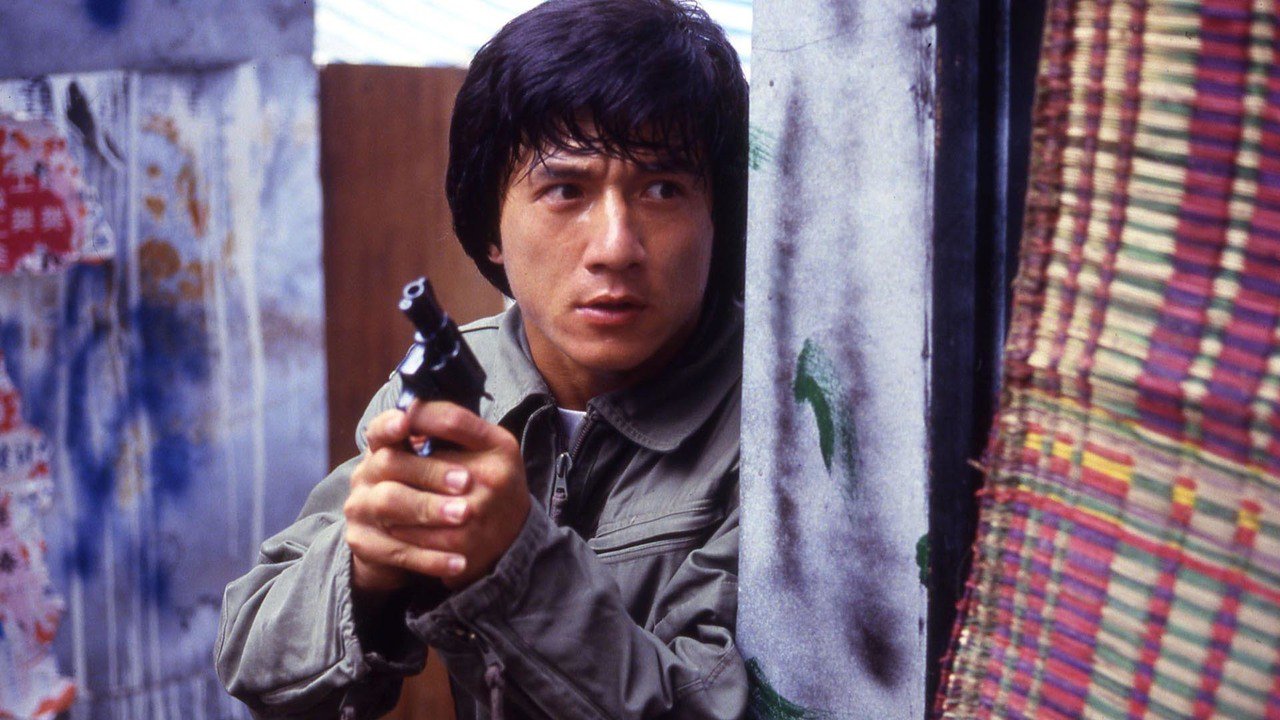
Jackie Chan is one of the greatest film performers of all time.
After all, performance doesn’t just mean acting; a dancer is a performer, just like a musician, a comedian, and of course, a professional screen fighter. So while it’s undisputed that Chan is far from a brilliant actor, he’s an unequaled performer; in the sense that he is not only a martial artist of unparalleled speed, creativity and dauntlessness, he’s also a comedic presence the likes of which only existed during the silent era.
It’s not an exaggeration in the slightest to say that Chan is the heir to Buster Keaton, Gene Kelly and Bruce Lee all at once. Like Keaton, he’s the most ingenious creator of death-defying stunts as physical comedy; like Kelly, he’s a brilliant choreographer who finds artistry in the way the human body moves through spaces and who also possesses a superman ability to execute those athletic moves; and like Lee, well, he’s just a badass of a kung fu fighter, who defined for generations what a true martial artist looks like.
So, as said, Jackie Chan is a once-in-a-lifetime kind of performer whose name should evoke joy and awe rather than the swift, ignorant, uninformed mockery it often elicits (due, unfortunately, to his admittedly terrible American phase). But don’t be fooled by his films made in the West; his work in Hong Kong is essential – the best of which this list gathers for your viewing pleasure. Enjoy.
10. The Young Master (1980)
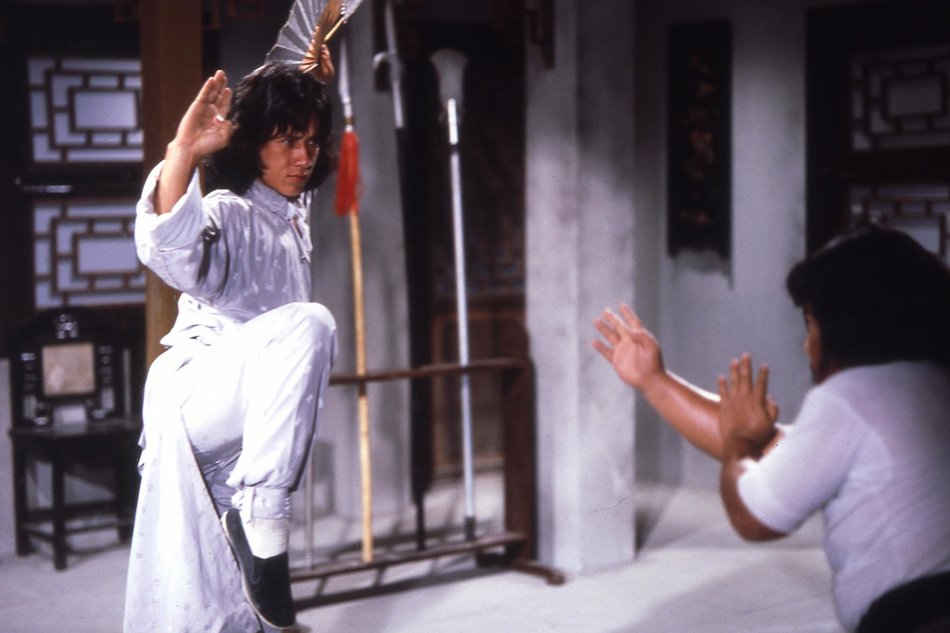
What makes Jackie Chan one of the most essential cinematic entertainers of all time is not only his unmatched athletic prowess and unwavering commitment to the bit, but also his understanding of cinematic language, from framing to editing, and how he uses that to better realise his stunts.
“The Young Master,” Chan’s second effort behind the camera (after the also very good but slightly less accomplished “Fearless Hyena”) is a pitch-perfect distillation of two decades worth of Hong Kong martial arts cinema. Taking cues from the masters who had directed him up to that point, especially Yuen Woo-ping, Chan stages fight after fight with an impeccable sense of movement, tight grasp of rhythm, and truly hilarious comic timing, waving terrific gags in between the complex choreographies.
Beyond being a performer of unmatched energy and charisma, from very early on Jackie was already an intelligent director. He hadn’t yet found his particular style, that unique mix of action and comedy that is entirely his own, but much like the title character of this picture, he was a master even at the tender age of 25 – which is how old he was when he directed this. Unbelievable.
9. Crime Story (1993)
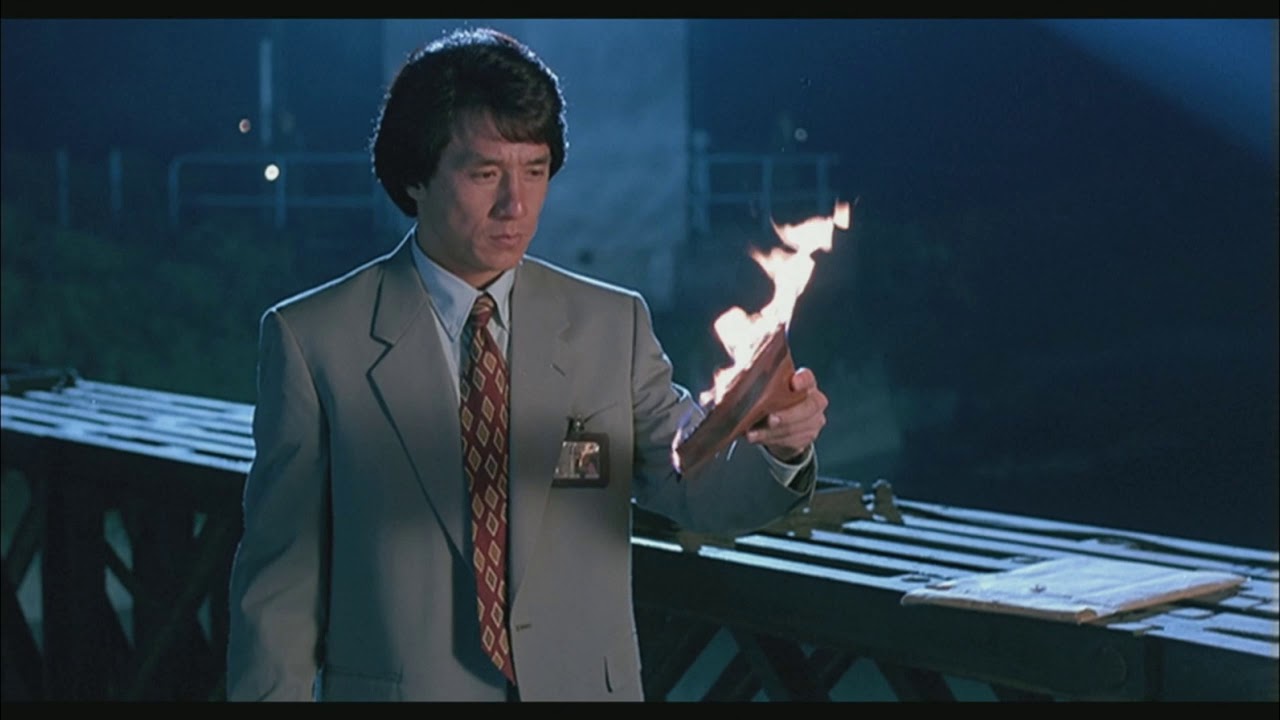
Jackie Chan is, of course, the undisputed master of action comedy, but “Crime Story” proves that, had he ever had the desire to shed his comedic persona for a more serious one, he would’ve been equally successful.
Director Kirk Wong’s movie has none of the silliness that defines most of Chan’s work, and surprisingly very little of martial arts set pieces; the action style is closer to the heroic bloodshed work of John Woo and Ringo Lam, with an emphasis on shootouts. It’s fitting for the tone of this stripped-down, gritty procedural (based on a real story, no less) that finds Chan at his most dramatically charged role.
It’s such a standout from the star’s usual performances that it won him a Golden Bear for Best Actor and led legendary Taiwanese filmmaker Edward Yang to proclaim he was good enough for an Oscar. Chan didn’t quite get there, but that seal of approval is even better.
8. Dragons Forever (1988)
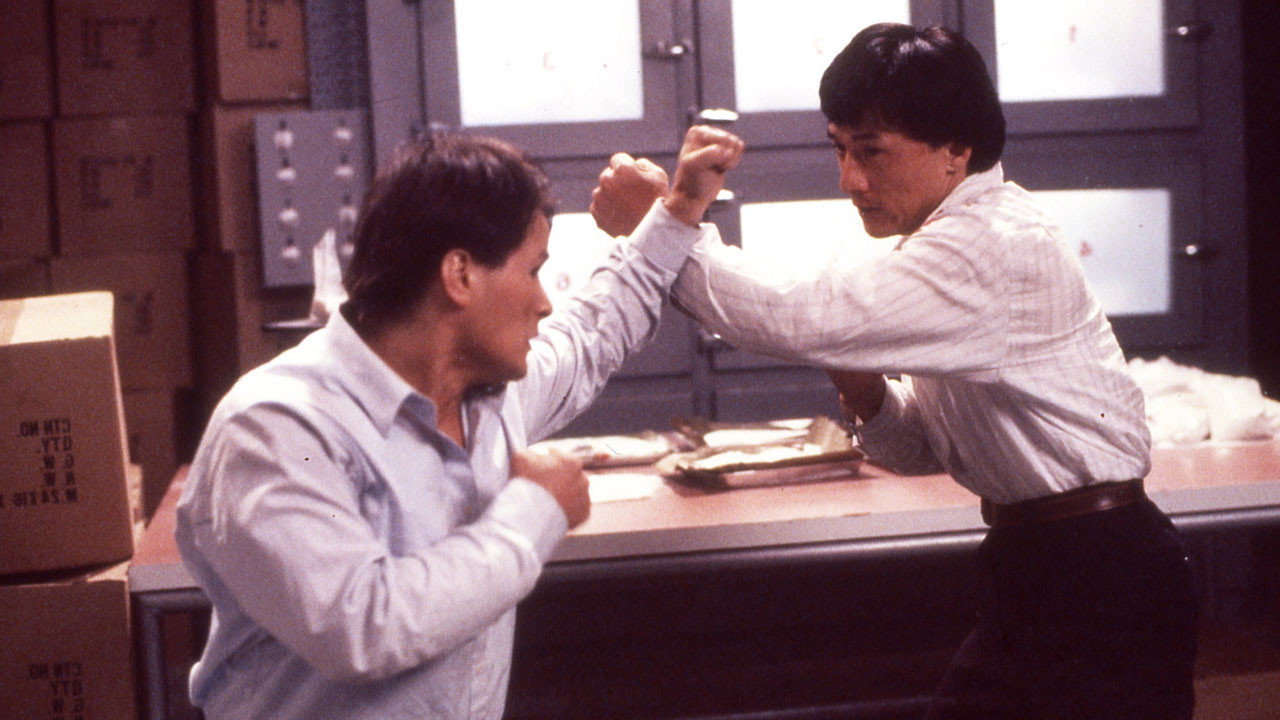
Sammo Hung is the Hardy to Jackie’s Laurel, the Ginger to his Fred – a wonderful comedic duo that are also a pair of performers of unbelievable athleticism, agility, and choreographic genius. The difference being that they don’t dance – they fight.
The two met and became friends at the famous Peking Opera School and went on to make many movies together, not only as co-stars but also as directors, taking turns at the helm of each project. “Dragons Forever” is a Sammo Hung picture, bearing his own distinct sensibility. Hung’s comedic style is possibly even sillier than Chan’s and in this movie, with another frequent collaborator of theirs, Yuen Biao, he crafts basically a kung fu version of the three stooges: physical gags abound and humorous misunderstandings outnumber the already bountiful fight sequences (the last of which, in a factory, is an all-timer set piece).
Most importantly, it all works equally well: Hong Kong comedy can be tough to translate for a foreign audience, but “Dragons Forever” is one of the funniest and most accessible of the bunch. There are several laugh-out-loud sequences in this (especially the one in which Sammo and Yuen break into Jackie’s house while he’s on a date), not in small part due to the phenomenal chemistry between the three leads.
7. Rumble in the Bronx (1995)
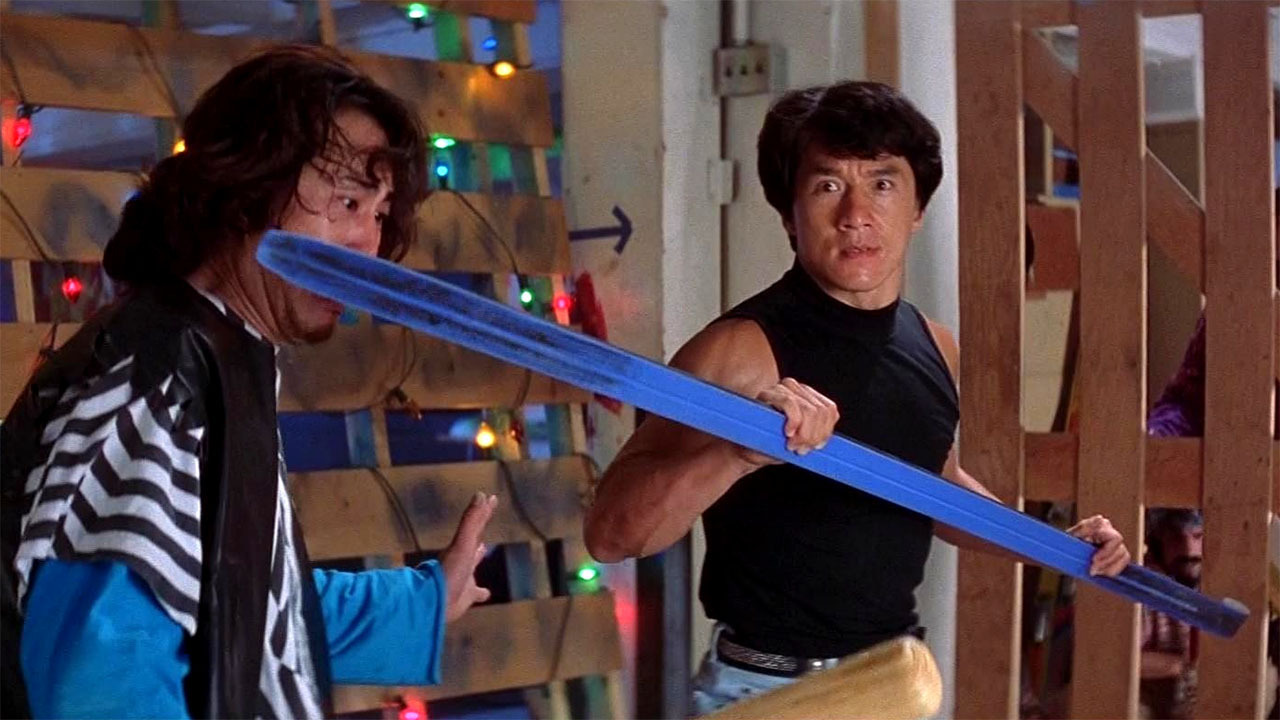
The movie responsible for launching Jackie Chan into international stardom, kickstarting his increasingly underwhelming American phase, “Rumble in the Bronx” is a movie explicitly made aiming for a foreign audience, but it’s unmistakably a Hong Kong picture.
Never mind the atrocious dubbing (always seek out the subtitled versions of everything) or how obviously non-New York it all is, the biggest indicator of this movie’s true nationality is how clean the action is, and how crazy the stunts get. Contrary to his sloppy American counterparts that chop Chan’s beautiful movements and rob them of their hard-earned fluidity, director Stanley Tong shoots and edits everything with a keen sense of camera placement and pacing, making the most out of the set pieces.
And what set pieces they are: the gag reel at the end of “Rumble in the Bronx” that shows the effort, injuries, and gaffes that took to craft the stunts (a Jackie Chan tradition) is one of the best of his career, going into the behind the scenes of how Chan really did jump between buildings, had a motorcycle go over his genitals, and tied himself to a boat running in the water. One of cinema’s greatest madmen.
6. Drunken Master (1978)
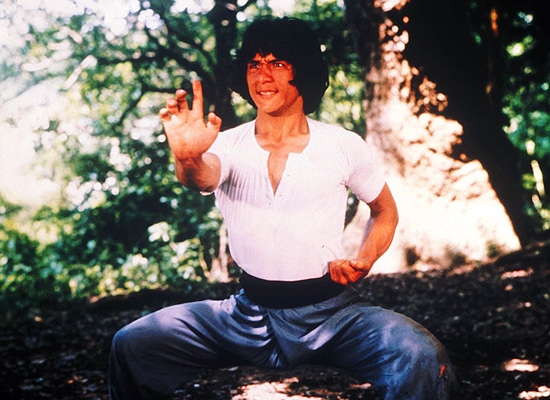
Jackie Chan starred in many Lo Wei pictures but none of them has brought him as much success as “Drunken Master,” the signature triumph from the first phase of his career.
Aside from being a comic period piece as most of their movies, story-wise, the film follows a Shaw favorite arc, of a cocky kung fu student who is bested by a mightier opponent and has to train and better himself to face him again. And visually, it’s straight out of the studio’s playbook: hyper-quick zooms (in and out) and static wide shots to showcase the fight choreography.
And what choreography it is: this movie’s thin narrative is merely an excuse to stitch together an endless string of combats, which Yuen Woo-ping, a master choreographer and director even from an early age, makes each more staggeringly inventive, fun and energetic than the last, all centered around a uniquely skilled performer. “Drunken Master” is simply a joy to watch, from beginning to end.